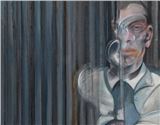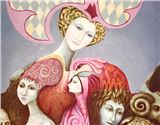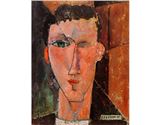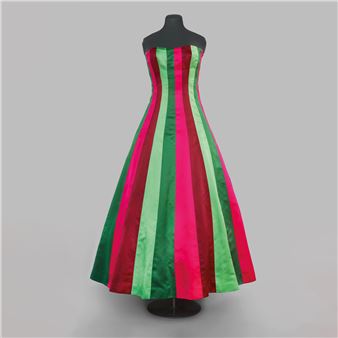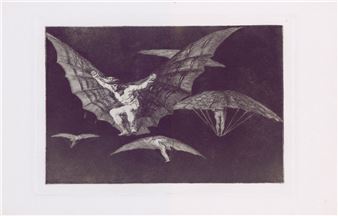Utopia. The Right to Hope
We are currently experiencing an unprecedented period of polycrisis on a global scale: In addition to wars, worldwide refugee movements, and a growing loss of faith in democracies, the man-made climate catastrophe dominates the thoughts and actions of many. Beyond cynicism and apocalyptic mood, however, it should be possible to live together in solidarity and community as a basis for civilizational and ecological survival. In the first two decades of the twenty-first century, it is primarily artists who take up such ideas in their works and advance the discourse on possible utopias.
The exhibition and publication project Utopia. The Right to Hope, initiated by the Kunstmuseum Wolfsburg, aims to give a sign of hope and confidence that a better and fairer life can be achieved for everyone on this planet. The aim is not to create a new grand design for the world, but rather to focus on a variety of micro-utopias that, when combined, can achieve something positive. For this reason, Utopia focuses primarily on works of art, but also on architectural projects, design objects, and examples from the applied arts that present utopian projects or ideas in various media. In addition to the critical examination of the concept of utopia itself and its promising but also totalitarian implications, Utopia focuses on projects that aim at small-scale change, including activist or practice-oriented fields of action. The various works and objects can offer suggestions on different levels for a more just and sustainable coexistence that takes into account marginalized social groups as well as animate and inanimate nature. In this context, art in particular can make groundbreaking contributions to utopian models for the future, as it has critically accompanied social processes with its palette of aesthetic and thematic means since the dawn of the modern era. This permanent critique of the status quo entitles art, more than any other cultural form, to utopia.
An academic advisory board with members from various fields supported the preparation phase of the exhibition. The exhibition project Utopia. The Right to Hope will be accompanied by a transdisciplinary publication with texts from the fields of art history, philosophy, ecology, sociology, law, architecture, history, and politics, including contributions by the following authors: Inke Arns, Andreas Beitin, Friedrich von Borries, Dagmar Fink, Lisa Garforth, Jörg Heiser, Jakob Huber, Wolfgang Kaleck, Sebastian Mühl, Ludger Schwarte, Maristella Svampa, Tilo Wesche, Kerstin Wolff and Alex Zamalin. Cooperation partners at local, national, and international level, as well as an extensive educational and support program, ensure the best possible networking and dissemination of the contents of Utopia. The Right to Hope.
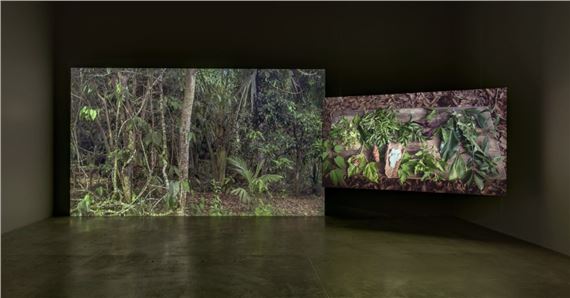
Recommended for you
We are currently experiencing an unprecedented period of polycrisis on a global scale: In addition to wars, worldwide refugee movements, and a growing loss of faith in democracies, the man-made climate catastrophe dominates the thoughts and actions of many. Beyond cynicism and apocalyptic mood, however, it should be possible to live together in solidarity and community as a basis for civilizational and ecological survival. In the first two decades of the twenty-first century, it is primarily artists who take up such ideas in their works and advance the discourse on possible utopias.
The exhibition and publication project Utopia. The Right to Hope, initiated by the Kunstmuseum Wolfsburg, aims to give a sign of hope and confidence that a better and fairer life can be achieved for everyone on this planet. The aim is not to create a new grand design for the world, but rather to focus on a variety of micro-utopias that, when combined, can achieve something positive. For this reason, Utopia focuses primarily on works of art, but also on architectural projects, design objects, and examples from the applied arts that present utopian projects or ideas in various media. In addition to the critical examination of the concept of utopia itself and its promising but also totalitarian implications, Utopia focuses on projects that aim at small-scale change, including activist or practice-oriented fields of action. The various works and objects can offer suggestions on different levels for a more just and sustainable coexistence that takes into account marginalized social groups as well as animate and inanimate nature. In this context, art in particular can make groundbreaking contributions to utopian models for the future, as it has critically accompanied social processes with its palette of aesthetic and thematic means since the dawn of the modern era. This permanent critique of the status quo entitles art, more than any other cultural form, to utopia.
An academic advisory board with members from various fields supported the preparation phase of the exhibition. The exhibition project Utopia. The Right to Hope will be accompanied by a transdisciplinary publication with texts from the fields of art history, philosophy, ecology, sociology, law, architecture, history, and politics, including contributions by the following authors: Inke Arns, Andreas Beitin, Friedrich von Borries, Dagmar Fink, Lisa Garforth, Jörg Heiser, Jakob Huber, Wolfgang Kaleck, Sebastian Mühl, Ludger Schwarte, Maristella Svampa, Tilo Wesche, Kerstin Wolff and Alex Zamalin. Cooperation partners at local, national, and international level, as well as an extensive educational and support program, ensure the best possible networking and dissemination of the contents of Utopia. The Right to Hope.
Artists on show
- Achim Mohné
- AES + F Group
- aLifveForms
- Andreas Greiner
- Anetta Mona Chisa
- Anetta Mona Chisa & Lucia Tkáčová
- Cao Fei
- Cauleen Smith
- Chitra Ganesh
- Chto Delat
- Cornelia Parker
- Eglé Budvytyté
- Folke Köbberling
- Haley Mellin
- Hermann Weber
- Hiromi Ozaki
- IRWIN
- Jaanus Samma
- Jasmina Cibic
- Jordi Colomer
- Kader Attia
- Keiken
- Khvay Samnang
- Liam Young
- Lin May Saeed
- Lucia Tkácová
- Maja Smrekar
- Margret Eicher
- Marina Naprushkina
- Melanie Bonajo
- Mischa Kuball
- Mischa Leinkauf
- Nasan Tur
- Nuotama Bodomo
- Olafur Eliasson
- Oliver Ressler
- Otobong Nkanga
- Pablo Albarenga
- Philipp Fürhofer
- Pinar Yoldas
- Raimund Kummer
- Rhoda Ting & Mikkel Bojesen
- Robert Gabris
- Rory Pilgrim
- Rosana Paulino
- Société Réaliste
- Stephan Huber
- Sven Johne
- Thomas Demand
- Tomas Saraceno
- Ursula Biemann
- Uýra Sodoma
- Violeta Burckhardt
- Yael Bartana
- Yinka Shonibare
Contact details


 ARTISTS
ARTISTS
